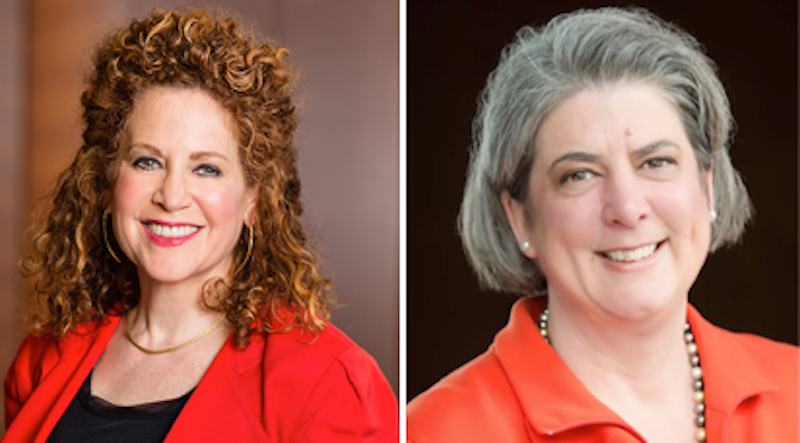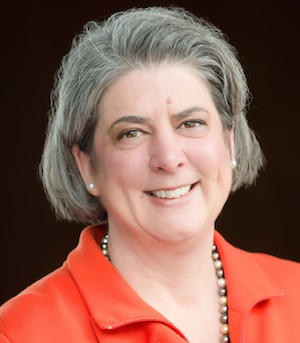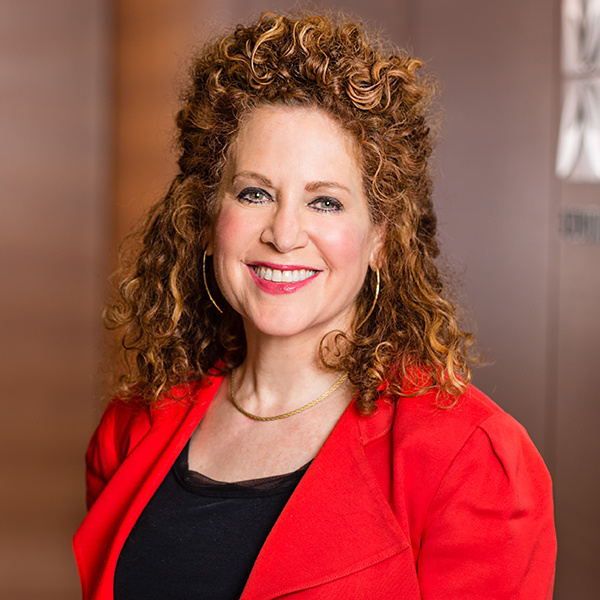
Editor’s Note: This is the fifth in a series of articles. To read other articles in the series, click here: article 1, article 2, article 3, article 4
Over the past four months I have interviewed 18 women who are trendsetters and innovators in the impact and sustainable finance sector. These women leaders are clear about today's capital market opportunities and risks. They are embracing both as the investment industry transitions toward a low carbon economy with greater emphasis on the economic value of intangible corporate assets and social impact enterprises.
These women are using their industry experience and leadership platforms to articulate a powerful message regarding the rapid growth in the use of non-financial data to drive investment performance and risk management.
Marry Passion, Purpose And Profession
 The purpose of her work is to make a difference for the families and individuals she advises, to help them realize their financial and investment goals. This is what Kathleen McQuiggan does every day as a wealth advisor with Artemis Financial Advisors LLC. It’s a role that she embraced in June 2017, when she left Pax Ellevate Management, where she was managing director for three years. “Working with advisors in that role motivated me to be in practice for myself with individuals and especially women,” she said. “I’m passionate about helping them make investment and financial planning choices,” McQuiggan continued “based on what’s important to them.”
The purpose of her work is to make a difference for the families and individuals she advises, to help them realize their financial and investment goals. This is what Kathleen McQuiggan does every day as a wealth advisor with Artemis Financial Advisors LLC. It’s a role that she embraced in June 2017, when she left Pax Ellevate Management, where she was managing director for three years. “Working with advisors in that role motivated me to be in practice for myself with individuals and especially women,” she said. “I’m passionate about helping them make investment and financial planning choices,” McQuiggan continued “based on what’s important to them.”
While at Pax World, McQuiggan was also responsible for sales, marketing and product management of the firm’s invest in women platform. She oversaw contributions to thought leadership in gender lens investing, women and sustainable investing, and led Pax World’s Women and Wealth Practice Management initiative, which focused on helping financial advisors better engage and serve female clients.
In this role, McQuiggan saw too many advisors not responding to client demand for more sustainable investment choices, whether focused on gender workplace issues, environmental impact or health and personal safety. That’s when she made the professional choice to begin providing these solutions to clients herself.
“I’ve always been a team player,” adds McQuiggan “and learned early on the value of relationship capital.” She also believes in “telling it like it is” and finds that her clients appreciate this approach to financial advice.
There are a couple of other teams that benefit from McQuiggan’s extensive finance industry experience and gender diversity leadership. She serves as a special advisor on gender diversity to the Center for Financial Planning (CFP Board), working with the Center’s Women’s Initiative to address the shortage of women in the financial planning profession. She also consults, through Catalina Leadership, with financial services firms looking to invest in women.
From Structured Derivatives To Family Impact Planning
In 1998, after 10 years of being an investment banker at JP Morgan and Fleet Bank, Randy Kaufman founded Wealth Strategies Group in the private bank at Fleet to advise Fleet’s high-net-worth clients in an integrated fashion. The work included investment management, philanthropic planning, creating family foundations and charitable remainder trusts. Her strong technical background suited her well to the structural aspects of working with high-net-worth clients. “I soon realized, however,” says Kaufman “that I did not understand what motivated such wealthy people, what made them tick. Tuning in to their emotional intelligence was a critical part of the relationship building process for me.”
Kaufman’s initial experience was that most wealthy investors did more due diligence when buying a car than they did when making multi-million-dollar charitable bequests. Many clients seemed to care more about the relationships they had with other donors to a cause than they did about how their philanthropy impacted the mission of the receiving organization.
As the sustainable finance industry grew some clients started tuning into the impact of their personal and charitable investments and Kaufman took advantage of the opportunity. “My values include that everyone should leave the world a better place,” she says. “I began researching and offering micro-finance opportunities, which provided more predictable returns and better diversification than public market impact strategies at that point in time.”
 Today, however, Kaufman often urges clients to carve out a portion of the family foundation assets and invest these assets with the support of their adult children. This approach has worked on more than one occasion to get the millennial generation involved in managing the family’s wealth sooner than they would be otherwise. “Even so,” admits Kaufman “this doesn’t always convert the senior family members to using additional impact investment strategies.”
Today, however, Kaufman often urges clients to carve out a portion of the family foundation assets and invest these assets with the support of their adult children. This approach has worked on more than one occasion to get the millennial generation involved in managing the family’s wealth sooner than they would be otherwise. “Even so,” admits Kaufman “this doesn’t always convert the senior family members to using additional impact investment strategies.”
Many wealthy investors still confuse impact investing with philanthropy, and the myth of underperformance can be hard to overcome. “I worked with one couple in which the husband is the CEO of a large asset management firm”, Kaufman says. “He refused to believe that investment alignment with personal values might work.” Meanwhile, the wife’s ESG and impact allocated portfolio outperformed his portfolio for many years.
Kaufman’s firm, EMM Wealth, is a 50-year-old family office. She bonded with her CIO over impact investing when they first met. The research team uses investment strategies the members of the team have considered impact-focused for many years. “The passion to advise clients this way every day,” smiles Kaufman “is one of the things I love about my job.” She encourages other advisors to do their research and demonstrate to clients that ESG and impact investing can be done with careful due diligence to produce competitive returns.
Paul Ellis founded Paul Ellis Consulting to work with financial advisors who want to integrate sustainable and impact investment strategies for their clients.